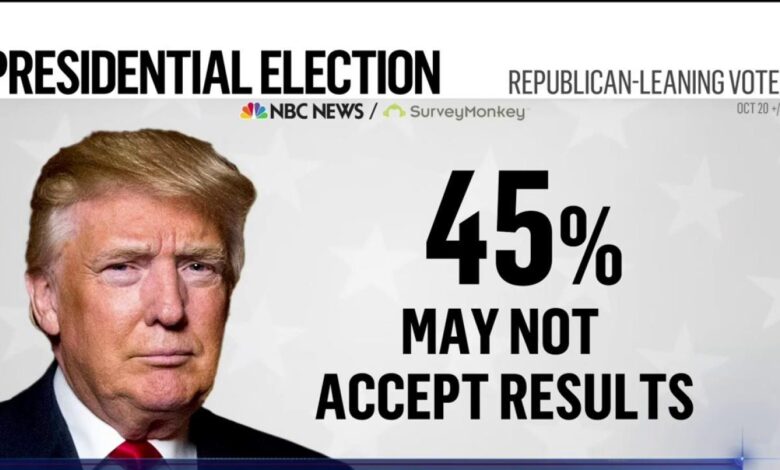Unveiling the Pulse of Democracy: Comprehensive Coverage of Election Contest News

Introduction
Election contests are the cornerstone of democracy, embodying citizens’ collective will and shaping nations’ leadership. These contests allow individuals to express their voices and choose representatives who align with their ideals. An election contest goes beyond mere voting; it is a testament to the functioning of democratic institutions and the vibrancy of political engagement.
News coverage plays a pivotal role in this process. It informs citizens, ensures accountability, and fosters transparency by highlighting each contest’s stakes, key players, and dynamics. When citizens are well-informed, they can make educated choices, ultimately strengthening the democratic fabric. This article delves into the intricate world of election contests, emphasizing their significance, the role of the media, and emerging trends that will define the future.
Understanding the Dynamics of Election Contests

Key Components of Election Contests
Election contests revolve around candidates, political parties, and their agendas. Candidates present their platforms reflecting solutions to pressing issues like healthcare, education, or economic reform. Political parties are the backbone, strategizing campaigns, mobilizing supporters, and shaping narratives.
Campaign financing is another critical element. The funding a candidate or party receives can significantly impact their outreach, advertising, and ability to connect with voters. However, this often raises concerns about equity and influence, highlighting the need for transparency in campaign spending.
Electoral Systems and Processes
Globally, electoral systems vary widely, influencing the outcomes and fairness of contests. First-past-the-post, proportional representation, and ranked-choice voting determine how votes are counted and winners are declared. Each system has strengths and challenges, shaping how candidates campaign and voters engage.
Voting methods also play a role. From traditional paper ballots to modern electronic voting machines, the choice of technology affects voter trust and participation. Ensuring robust, tamper-proof systems is essential for maintaining electoral integrity.
Legal and Ethical Considerations
Election laws govern contests, from candidate nominations to dispute resolution. These frameworks ensure fairness but are often tested during close contests or allegations of malpractice. Ethical campaigning—focusing on issues rather than mudslinging—is equally vital yet frequently overlooked in high-stakes elections.
The Role of Media in Shaping Election Narratives
News Channels and Reporting Standards
Media outlets are voters’ primary source of information, but their role comes with great responsibility. Balanced reporting ensures that all candidates and issues are fairly represented, giving voters a complete picture. However, media bias—whether intentional or subconscious—can distort perceptions and impact electoral outcomes.
For example, sensational headlines or disproportionate coverage of specific candidates can skew public opinion. Adherence to journalistic ethics and fact-checking protocols is crucial to preserving media credibility during elections.
The Rise of Digital Platforms
In today’s digital age, social media has become a powerful tool for election campaigns. Platforms like Facebook, Twitter, and Instagram enable candidates to reach millions of voters directly. While this democratizes access to information, it also opens the floodgates to fake news and misinformation.
Misinformation campaigns can use manipulated images and fabricated stories to mislead voters and create confusion. Digital literacy programs and fact-checking initiatives are vital to combating this growing menace.
Impact of Real-Time Updates
Election coverage thrives on real-time updates, from candidate speeches to polling station turnout. While this keeps voters engaged, the constant influx of information can lead to anxiety and overinterpretation of trends. Maintaining public trust is essential to balancing timely updates and measured reporting.
Key Highlights from Recent Election Contests
Major Election Stories Around the World
Recent elections have showcased the diversity and complexity of global political landscapes. Presidential contests in countries like the United States and Brazil highlighted deep ideological divides, while European parliamentary elections emphasized coalition-building and consensus.
In developing democracies, elections often focus on fundamental issues such as infrastructure and poverty alleviation. These contests underscore the universality of electoral challenges, regardless of geography or governance structures.
Notable Trends in Election Dynamics
A significant trend is the rising voter turnout among young and first-time voters. This demographic, driven by digital awareness and social activism, is reshaping political discourse. Grassroots mobilization and digital campaigning have also gained momentum, reducing reliance on traditional campaign methods.
Controversies and Challenges
Election controversies are not uncommon. Allegations of fraud, voter suppression, and cyber interference often dominate headlines. Recounts and legal battles, while time-consuming, highlight the importance of robust electoral frameworks to address disputes transparently.
The Future of Election Contests and News Coverage
Technological Innovations
Emerging technologies like blockchain and AI are poised to revolutionize election processes. Blockchain can secure voting systems against tampering, while AI can analyze voter sentiment and predict trends. For media, data visualization and sentiment analysis enhance election coverage, making it more insightful and engaging.
Global Trends in Voter Behavior
Voter behavior is becoming increasingly globalized, influenced by shared challenges like climate change, economic inequality, and social justice. Youth participation, in particular, is driving demand for policies that address these global concerns.
Strengthening Electoral Integrity
Governments, media outlets, and civil society must collaborate to ensure fair elections. Initiatives to counter misinformation, promote unbiased reporting, and safeguard electoral systems are essential to upholding democracy in an increasingly interconnected world.
Conclusion
Election contests are more than a competition for power—they reflect societal priorities, values, and aspirations. The media plays a vital role in bridging the gap between candidates and voters while holding power to account. As technology and global dynamics evolve, so will the nature of election contests and their coverage.
Engaged citizens who critically evaluate news and participate actively in the democratic process are the cornerstone of fair and transparent elections. By staying informed and vigilant, we can all contribute to a stronger democracy.
FAQs
- What is an election contest?
- An election contest is a competition between candidates or parties to win public office through a democratic voting process.
- Why is election news important?
- Election news keeps citizens informed, promotes transparency, and ensures accountability in the democratic process.
- How can I identify fake election news?
- Look for credible sources, cross-check information, and avoid sensational headlines from unverified platforms.
- What are the main challenges in covering elections?
- Challenges include media bias, misinformation, and technological limitations in real-time reporting.
- How do social media platforms affect election contests?
- Social media amplifies candidate outreach but also contributes to the spread of misinformation and polarizing narratives.
- What measures ensure fair election reporting?
- Ethical journalism, fact-checking, and adherence to legal standards are essential for fair reporting.
- What can citizens do to stay informed about elections?
- Follow trusted news outlets, engage with credible analyses, and participate in community discussions to make informed decisions.
You may also read:https://profeshnalseowork.com/

